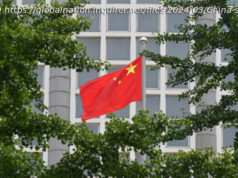The new national security law threatens Hong Kong’s autonomy and way of life.
You are browsing in private mode.
To enjoy all the benefits of our websiteLOG INorCreate an Account
The city of Hong Kong was stunned, and there was sharp condemnation from the rest of the world. The National People’s Congress in Beijing formalised a decision to step in over the heads of Hong Kong’s duly elected legislature, imposing a new national security law directly on the city. The vote in China’s parliament took place on 28 May and passed with near-unanimous support.
The violent anti-CCP nature of the past year’s protests and increasing calls among some activists for Hong Kong independence no doubt caused alarm in Beijing. At the same time, China’s leaders were clearly frustrated at Hong Kong’s failure to enact its own national security law in the 23 years since the handover. They were also angry at the gridlock and disfunction inside Hong Kong’s Legislative Council (known as “LegCo”), a situation they had decried in recent public statements.
As a result, the National People’s Congress has resolved to task its Standing Committee with drafting its own law, covering secession, subversion, terrorism and foreign interference, and apply it directly to Hong Kong by decree. The law threatens to cast a dark shadow over Hong Kong, its lively civil society, and in particular the extensive global connections enjoyed by people based in a city which built its reputation as a hub for the international flow of goods, capital and information.
The move is on its face a clear violation of Hong Kong’s constitution, the Basic Law, which provides that Beijing may only legislate for Hong Kong in matters of foreign affairs, defence and other matters outside the scope of Hong Kong’s autonomy. The infamous Article 23 of the Basic Law provides that Hong Kong should enact the national security legislation “on its own” – wording that clearly precludes Beijing intervening in the way that it is now doing. The Hong Kong Bar Association also concluded in a statement this week that Beijing “has no power” to impose the new law on Hong Kong, and that Beijing’s plan raises “fundamental constitutional and legal concerns”.
Beijing will no doubt seek to justify the action by claiming that national security is a matter outside Hong Kong’s autonomy, a claim flatly contradicted by the face of the words of Article 23 itself. But that no longer matters. If it was not clear enough from Beijing’s recent statements claiming that provisions of the Basic Law prohibiting interference by central government departments in Hong Kong affairs do not apply when inconvenient to Beijing, it is clear now: the Basic Law means whatever Beijing wants it to mean.
Perhaps even more alarming, the NPC’s proposal provides that mainland government departments with responsibility for national security will establish branches in Hong Kong to carry out their work.






